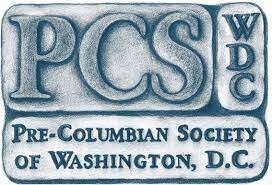History and Histories of the Popol Wuj: A Reappraisal of the Origin and Purpose of a Mesoamerican Literary Masterpiece by Frauke Sachse, PhD
This meeting will be held at the Charles Sumner School, 17th & M Streets, N.W., Washington, D.C.
The meeting starts with refreshments at 6:45 pm and the lecture begins at 7:15 pm.
The Popol Wuj is widely acknowledged to be the most significant colonial document that was ever written in a Mayan language. The text describes the creation mythology and origin of the K'iche' people and can be regarded pivotal for our understanding of Prehispanic religious traditions and the perception of history. This talk will explore the Precolumbian origin of the Popol Wuj, analyzing Classic Maya antecedents as well as Central Mexican narrative traditions, and will suggest that the document as we know it today was composed in response to Christianization. Our speaker will discuss the impact of missionary evangelization in sixteenth-century Highland Guatemala and show that the text is a literary masterpiece of written indigenous resistance.
Frauke Sachse is Assistant Professor of Precolumbian Studies and Anthropology at the University of Bonn. She holds a PhD in Linguistics from Leiden University and a MA degree in Anthropology/Precolumbian Studies, Archaeology and English from the University of Bonn. Her research interests concern the languages, linguistics, and ethnohistory of Mesoamerica, with a current focus on aspects of translation and the understanding of cultural concepts in indigenous as well as doctrinal sources from Highland Guatemala. She has authored, co-authored, and edited several volumes including Reconstructive Description of Eighteenth-Century Xinka Grammar (2010), Maya Daykeeping (with John M. Weeks and Christian Prager, 2009), and Maya Ethnicity: The Construction of Ethnic Identity from Preclassic to Modern Times (2006). She has held fellowships at the Library of Congress (2016-17) and the Dumbarton Oaks Research Library (2012-13) in Washington as well as at the Princeton University Library (2007), and received research support from the Foundation for the Advancement of Mesoamerican Studies, the German Academic Exchange Service DAAD, and the Deutsche Altamerika Stiftung. Between 2005-2016, she was president of the European Association of Mayanists (WAYEB).

